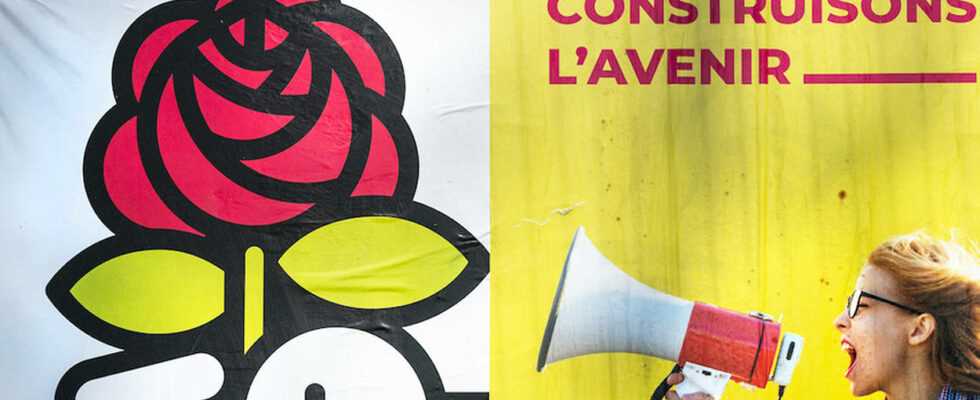By giving up his body to Jean-Luc Mélenchon, the PS would have lost his soul. This is what repeat, François Hollande at the head, the (oldest) personalities of the party since the agreement concluded with La France insoumise, the communists and the ecologists. They parade in procession, contrite and afflicted, their voices full of despair and pride: how can we let this happen? They play a moral indignation by believing without doubt to touch voters whom they understand today and with regret that they were not their property. The most regrettable is not their lack of sincerity nor their blindness, but their strategy: the PS has no soul. Moreover, in political matters and particularly in a secular democracy, no party has one. We are witnessing, in reality, a rebellion of rentiers, where the delicious languor of comfort gives way to a last surge of authority.
As Gaël Brustier remarked in See you tomorrow Gramsci, the main quality of the Socialist Party as imagined by François Mitterrand was to be able to win elections. His only soul was this one, and it wasn’t so bad. To put it another way, if he is no longer in the majority and he is incapable of dominating an election, his added value to the left is negligible. The common program, at the end of which the PS operated a turn to the left at the beginning of the 1970s, allowed a convergence with the Communist Party and an ideological rearmament. Thanks to Ceres and its two leaders, Jean-Pierre Chevènement and Didier Motchane, the Socialists took care of their left wing and their social program. When he came to power, François Mitterrand had social ambitions: nationalization, redistribution. The failure of the recovery policy led to the turn of rigor in 1983. If the PS had ever had a soul, it had just lost a considerable part of it. Henceforth, the construction of the European Union and the fight against discrimination, anti-racism in particular, would become the substitutes of social policy, the ideological and strategic markers of the governing left. Two policies which in themselves have nothing wrong, but which certainly did not replace the promises of social order.
Olivier Faure, ideal culprit
In 1997, when the Socialist Party and the Communist Party agreed to create the plural left, dedicated to governing within the framework of a cohabitation with President Chirac, Lionel Jospin declared himself, before becoming Prime Minister, hostile to the respect of budgetary rules of the European Union. To Anne Sinclair, during the campaign, he declared: “No to absolute respect for the 3% criterion! No one at that time thought of reproaching him for having either sold or betrayed the soul of the Socialist Party. Twenty-five years later, those who were the ministers of a head of government explicitly and deliberately hostile to the respect of the treaties explain with a relaxed attitude and an appearance of confusing sincerity that it is unbearable for a socialist to be a member of an alliance that would disobey the Union. Apart from amnesiacs, who can give the slightest credit to this comedy?
READ ALSOMichel Richard – This Mélenchon who hypnotizes the left
Olivier Faure, the first secretary of the party, is once again the ideal culprit of a company to which he can do nothing. On the contrary, it is with an exemplary sense of responsibility, a remarkable and noted intelligence for five years, that he has done his duty: to save what could be saved from the ship of which he is the commander. He himself was the survivor of a generation that fell on the front lines of the 2017 legislative elections against a Republic that was then unstoppable. Some had, in the government, understood well before today the turning point to operate. Like Matthias Fekl, a brilliant and courageous young Secretary of State for Foreign Trade, who was the first to warn of irregularities in the transatlantic partnership project (TTIP), and therefore to defy liberal evidence.
To triumph, the parties must imagine a software capable of gathering a majority, be cynical in order to gather as many forces around them as necessary to compensate for their weaknesses.
As for the former ministers of François Mitterrand, Lionel Jospin, François Hollande (often all three), they are moved, and we understand them, to witness the disappearance of a liner on board which they conquered the seas. From the deck where they proudly commanded their crew, did they see the first leaks in the hold? The truth is also that, since 2012, dozens of left-wing intellectuals have continued to write books to point out the ideological excesses of a Socialist Party in the process of no longer speaking to anyone. Of a party which, precisely and by mistake, began to believe in the existence of the soul. Be of a higher force, invisible and more powerful than reality itself. That it was enough to invoke to win.
READ ALSOThe shock of May 1981: Mitterrand in the General’s office
The Vand Republic is a democracy whose functioning is rational and rationalized. To triumph, the parties must imagine a software capable of gathering a majority, be cynical in order to gather as many forces around them as necessary to compensate for their weaknesses. This is how François Mitterrand became president. Games of devices are inevitable, but they must be in reasonable proportion in comparison to creativity. That is to say, to propose to a determined electorate solutions to their problems. When the answers given do not answer anything, the entity collapses. This is how the parties voluntarily sell their souls to the holders of the most efficient equation. And that is why what some call “soul” actually means “annuity.”
Book reference:
Gael Brustier, See you tomorrow GramsciParis, Deer, 2015.
